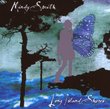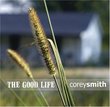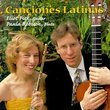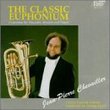| All Artists: George Frideric Handel, Harry Christophers, Mark Padmore Title: Handel: Esther (1718 Version) / Argenta, Padmore, George, Randle, Christophers Members Wishing: 0 Total Copies: 0 Label: Collins Classics Release Date: 3/12/1996 Genre: Classical Styles: Opera & Classical Vocal, Chamber Music, Forms & Genres, Sonatas, Historical Periods, Baroque (c.1600-1750), Instruments, Reeds & Winds Number of Discs: 2 SwapaCD Credits: 2 UPCs: 5023391704024, 723722406522 |
Search - George Frideric Handel, Harry Christophers, Mark Padmore :: Handel: Esther (1718 Version) / Argenta, Padmore, George, Randle, Christophers
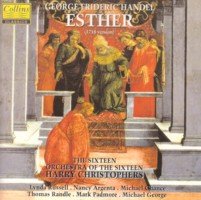 | George Frideric Handel, Harry Christophers, Mark Padmore Handel: Esther (1718 Version) / Argenta, Padmore, George, Randle, Christophers Genre: Classical
Among Handel's rarely performed but worthy and wonderful oratorios is Esther, often dismissed for its problematic libretto and its substantial borrowings from other works. Forget all of that and just listen to this thor... more » |
Larger Image |
CD DetailsSynopsis
Amazon.com Among Handel's rarely performed but worthy and wonderful oratorios is Esther, often dismissed for its problematic libretto and its substantial borrowings from other works. Forget all of that and just listen to this thoroughly engaging and tuneful work that features some of Handel's finest arias and most sublime choruses. Harry Christophers and his performers keep the energy high while the sound team provides uncommon immediacy and presence. --David Vernier Similar CDs
Similarly Requested CDs
|
CD ReviewsBeautifully done hcf | 05/04/2000 (5 out of 5 stars) "Esther, Handel's first oratorio, is often dismissed as an experimental work not worthy of serious attention. This wonderful recording, however, demonstrates that the work, even in its earliest surviving score, has considerable merit. The work is based on the well-known biblical legend of Esther, the wife of Persian King Ahasuerus, who dares to disobey Persian law (which prohibited anyone from appearing before the king unsummoned) in order to make a plea on behalf of her exiled people. Because listeners were supposed to be familiar with the legend, the oratorio is not concerned with the logical sequence of events. Many details of the plot are missing and the main characters (Esther and Ahasuerus) don't even enter until scenes four and five respectively. Yet, despite its structural problems, Esther is quite compelling musically. It contains beautiful examples of choral writing (the plaintive chorus Ye sons of Israel mourn is especially striking). It contains powerful dramatic confrontations between Esther and Ahasuerus on the one hand, and Esther and Haman, on the other, with a lyrical Esther-Ahasuerus duet tucked in between. It contains cheerful arias of rejoicing (just wait till you hear Tune your harps!) and pensive arias of worship or entreaty. The instrumental score is unusually rich too, containing such beautiful details as obbligato harp, pizzicato strings and Water Music-like parts for horns. The singing is of a very high order, as one would expect from Christophers and the Sixteen. I don't know whether this recording definitely surpasses its predecessor - a 1984 recording of Esther by Christopher Hogwood, but it is definitely a strong rival. The cast is very strong on both recordings (Hogwood had Rolfe-Johnson, Kwella, Kirkby, Minter, Thomas, Elliott and Patridge). My personal picks from these two recordings are as follows: Patrizia Kwella as Esther (Hogwood), Thomas Randle as Ahasuerus (Christophers), David Thomas as Haman (Hogwood), Michael Chance as the Priest (Christophers), Mark Padmore as 1st Israelite/Mordecai (Christophers), and Nancy Argenta as Israelite Woman (Christophers)." A voice teacher and early music fan George Peabody | Planet Earth | 01/22/2008 (5 out of 5 stars) "ESTHER IS ONE OF HANDEL'S MOST INTIMATE SACRED ORATORIOS, presented here in its original 1718 version, performed and recorded 'in the round'
Handel began composing the Oratorio 'Esther' in 1718, and it was first performed in London in 1732. This is one of Handel's shorter oratorios, at less than 100 minutes. There is some confusion as to who actually wrote the libretto for it, but the story follows very closely the biblical story of Esther in the book of Esther in the old testament. The story tells of a plot of Haman, the Agogite(Michael George, bass), jealous and powerful vizier of King Xerses (Ahasuerus-Tom Randle-tenor), of Persia(485-464), to destroy in a single day all the Jews living in the Roman Empire. He is moved to this out of hatred for the Jewish servant Mordecai (Mark Padmore-tenor), who for religious reasons refuses to render him homage. The day of the proposed massacre is determined by lot. Meanwhile Esther, niece and adopted daugher of Mordecai is chosen by King Xerses. She averts the pogrom planned against her people and has the royal decree of extermination reversed against Haman and the enemies of the Jews. Mordecai replaces Hamon, and together with Esther, works for the welfare of their people. As you can see this makes for an interesting oratorio, which it truly is! This is a 'small' contribution compared to many of Handel's other works. However, it is not 'small' in a musical sense. There is much creativity on the part of Handel as to the orchestral scoring; he exploits his small orchestra and chorus in surprising ways, introducing new vocal and instrumental colors thrroughout the score, adding and subtracting instruments and voices in many and varied ways. this is a listening surprise! The sound of Esther, superbly communicated in the recorded performance here is pure enchantment. Among the soloists, none of whom is less than accomplished, Nancy Argenta and Michael Chance dominate. Both singers affirm a new golden age of Handel interpretation. And what a great performance on the part of the 'Christophers' as well as all the vocal soloists. Mark Padmore's (Mordecai) aria "Tune your harps to cheerful strains" was superb as was the duet between Lynda Russell (Esther) and Tom Randle(Ahasuerus) "Who calls my parting soul from death?". But the aria that really drew me into the 'drama' of it all was the aria by Michael Chance; : "O Jordon, Jordon sacred tide". It was absolute perfection: beautiful rich sound, excellent diction and presented in a highly emotional manner. No lover of Handel's music should miss this wonderful recording. And incidentally the other 'Esther ' viewed on this website with a different cover is the very same as this one. So pick your price!!!!" |

 Track Listings (17) - Disc #1
Track Listings (17) - Disc #1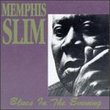

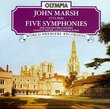
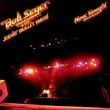
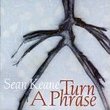
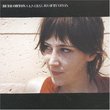
![Love In The Real World [ENHANCED CD]](https://nationalbookswap.com/cd//m/63/5563/425563.jpg)

